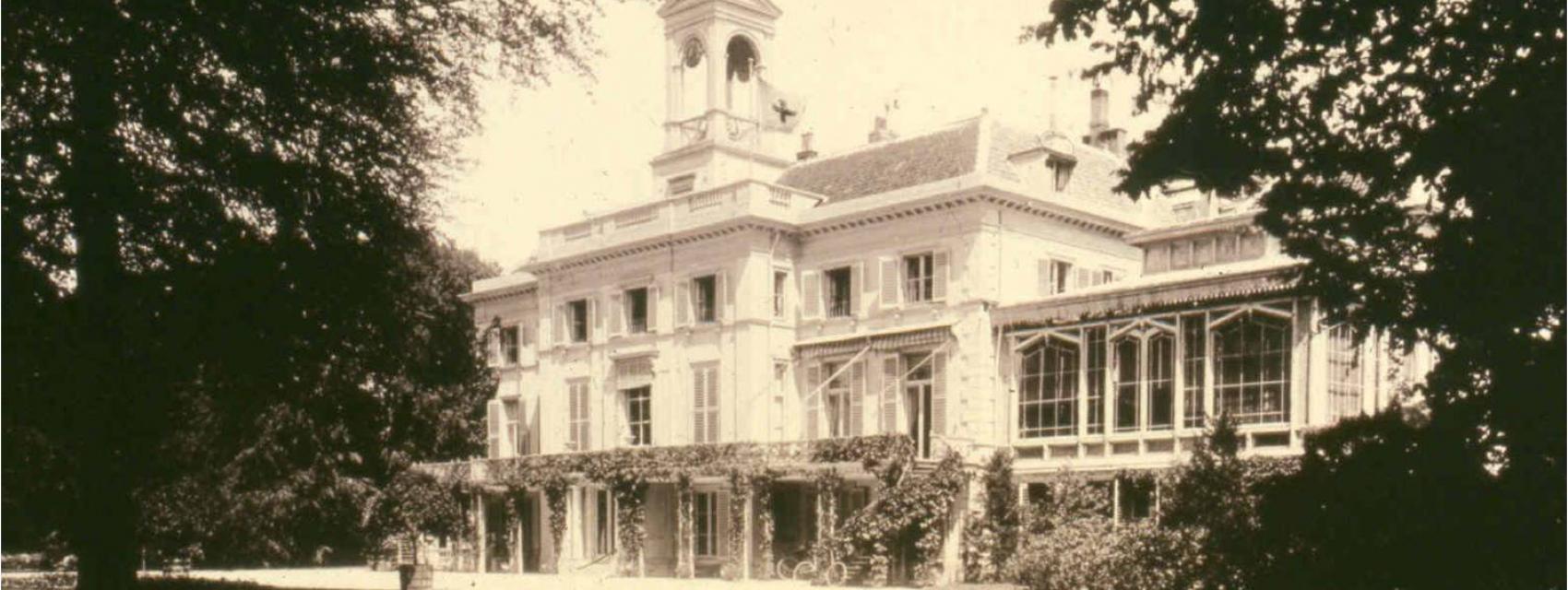
History
The Netherlands Institute of International Relations ‘Clingendael’ was founded in 1983. It is the result of a merger between five smaller institutes, all of which were active in the field of international relations.
The first director of the Institute was political journalist and commentator Henk Neuman, who retired in 1990. He was succeeded by Joris Voorhoeve, who became Dutch minister of Defence in 1994. In 1994, Paul Meerts was acting director for half a year. Until 2005 Alfred van Staden, professor in International Affairs at Leiden University was Clingendaels director. He passed the baton to Jaap de Zwaan, professor of European Law at the Erasmus University of Rotterdam. In May 2011 he was succeeded by Ko Colijn, professor in international security at the Erasmus University of Rotterdam and journalist, who was director of the Clingendael Institute until July 2016. Since July 2016 Monika Sie Dhian Ho, former director of the Wiardi Beckman Stichting, is director of the Clingendael Institute.
Research and Training
The focus of Clingendael has always been a combination of research and training. The institute has always benefitted from the synergy between these two disciplines. Over the years, the Clingendael Institute, as it is usually referred to, has developed into a renowned platform of knowledge on international affairs, connected to a vast global network of other centres of expertise.
Topics of interest
Clingendaels main areas of expertise have always been international security and Europe. Specific topics can vary, since Clingendael staff also follow and analyze current trends and developments. Themes that have been covered over the years are transatlantic relations and foreign policy of the US, Russia, terrorism, causes of conflict, fragile states, the UN, NATO, and Europe. At a later stage diplomacy became a separate field of interest.
Nowadays Clingendael focuses on conflict management, crisis control and negotiation techniques, developments within the European Union and the Euro zone, the rule of law, terrorism, sustainability, and economic diplomacy, as well as on specific regions and countries, like Asia, the Middle East, Sudan, and China.
Platform for debate
As Clingendael is not affiliated with any political, religious or social movement, it also acts as a platform for open discussion on international affairs. Since 1983, the Institute has welcomed many prominent speakers who have presented their valuable contributions during one of Clingendaels seminars and expert meetings. Many distinguished guests have spoken on a wide range of topics, varying from the policy of the European Union to the role of sports in development cooperation. Clingendael has welcomed keynote speakers such as H.E. Dr. Armando Guebuza, President of Mozambique, Dr. Rodrigo de Rato, managing director of the IMF, Dr. Carl Bildt, minister of Foreign Affairs of Sweden, and various members of the Dutch Royal House.
History of the Huys Clingendael
The Clingendael Institute is located in Huys Clingendael, named after its location in a ‘dael’ (valley) of the ‘clingen’ (an old Dutch word for sand dunes); 'Clingendael' thus actually means 'valley in the dunes'. The farm and lands, first mentioned in the archives in 1544, were purchased in the first half of the 17th century by Jan Doublet, who, on being appointed Treasurer General of the Seven United Provinces moved to The Hague from Mechelen. His sons designed and built the stately home as we now know it in the second half of the 17th century.
In the 19th century the Van Brienens, a family of merchants and bankers, purchased the estate and it remained in their hands until after the Second World War, during which it became the residence of the Nazi Reich’s Commissioner for the Occupied Netherlands.
Gardens and parkland
Clingendael was famous for its gardens. Inspired by French baroque garden architecture, the gardens were a small replica of those designed for Louis XIV by the famous André le Nôtre. More recently, Lady Daisy Van Brienen laid out Clingendael’s fine Japanese gardens. The park and gardens are now open to the public all year round.
Home to The Clingendael Institute
In 1954 the estate became property of the municipality of The Hague, and remains so to this day. Our Institute has been privileged to be located here since 1983.

